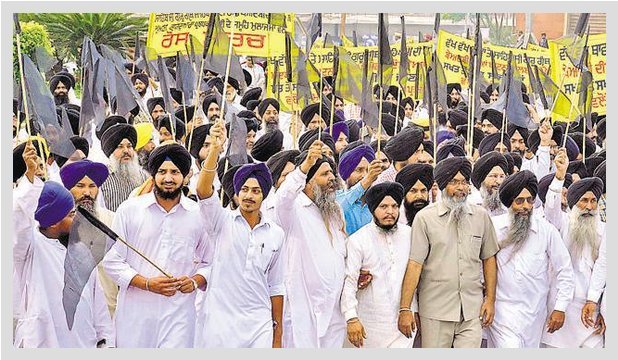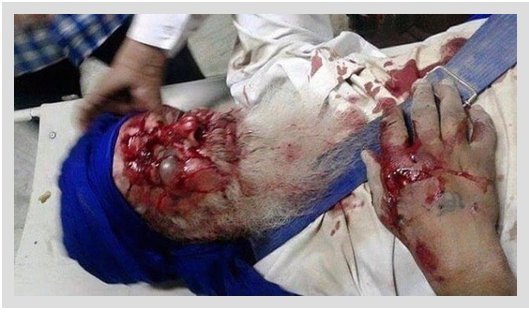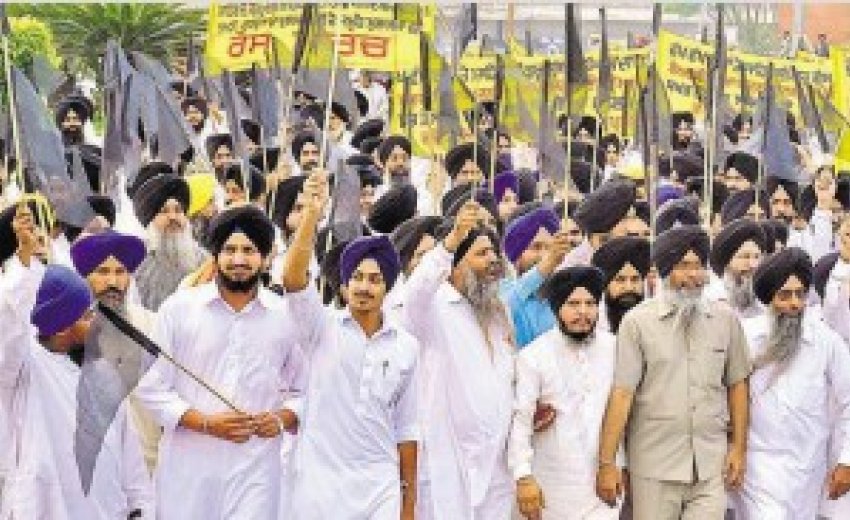Janhavi is a second year studying Medical Physiology and is secretary of KCL Sikh Society.
Sandeep is a third year medic with an iBSc in Pharmacology

Oct 27 2015: Sikhism, or Sikhi as it is known to its followers, is approximately 500 years old and host to 25 million devotees worldwide – a relatively small number in comparison to other world faiths. Guru Nanak, the founder of Sikhi, was a visionary who sought to eradicate the caste system which was, and still is, prevalent in Indian society, amongst many other revolutionary changes. Through the teachings and actions of Guru Nanak and his nine subsequent human Gurus, followed by the “eternal” written Guru, the Guru Granth Sahib, Sikhs worldwide believe in honest hard work, selfless action and giving, constant reflection upon Waheguru – the Sikh concept of the divine – and absolute equality regardless of gender, race, colour or creed.
Although its origin stems from the Punjab region, less than 2% of India’s total population is Sikh. Throughout its relatively short history, the Sikhs have time and time again stood up against injustice and oppression, regardless of who the oppressed are – in line with the Gurus’ principle of equality – ranging from the ninth Guru sacrificing his life to protect persecuted Hindus in the late 1600s, to modern-day Sikh charities such as SWAT supporting and feeding the homeless population of Central London weekly. Of course, Sikhs have suffered more than their fair share of persecution at the hands of many perpetrators, from the Mughal Empire during the time of the Gurus, to the modern-day Indian government. Throughout these events, the Sikhs have always stood up to defend themselves but are often overlooked due to their minority status in India.
Recent events in Punjab regarding the current protests started when a copy of the Guru Granth Sahib, stolen back in June, was found torn and scattered on the streets of Bargari, a village in Punjab, on October 12th. This incident, as one would expect given the Sikhs’ reverence of the Guru Granth Sahib as a living embodiment of the Guru, prompted protests from Punjabi Sikhs. Despite being peaceful, the protests attracted the police – who reportedly used tear gas, water cannons and opened fire, resulting in the deaths of two protesters and injuring many more. Sources including a recent Huffington Post article state that the government then brought in the Indian Army and ordered a media blackout; of course, this merely added to the protesters’ anger.
Despite the blackout, mobile-captured pictures and videos inevitably began circulating on the internet, attracting the attention of the significant Sikh population living in the West. British Sikhs, shocked by the lack of media coverage, started a petition requesting that the BBC report this news, given the evident abuse of power against civilians’ rights to protest.
Even with continued efforts and amassing 75,000 signatures on the petition – and other, separate incidents of desecration of the Guru Granth Sahib – the BBC still had not reported on the desecration, protests or killings by October 18th. On that same day, on the BBC show Sunday Morning Live, Jagmeet Singh – a volunteer from the educational charity Basics of Sikhi invited to discuss interfaith marriages – interrupted the presenter Sian Williams to desperately request some form of media coverage. His outburst of “I have to say Sikhs are being killed in Punjab and nobody is reporting it – please report it” led to Williams frustratedly threatening to have Singh removed from the show; after returning from an unrelated cutaway clip, Singh was gone.
Multiple media outlets immediately picked up on, and reported, Jagmeet Singh’s live-television plea. The petition, Singh’s outcry and the fervorous online response using #SikhLivesMatter collectively led to the BBC eventually publishing an article on October 19th denying a media blackout, and a subsequent article the following day on the protests. The BBC and other media sources referred to the protesters as “radical”. Should it really be considered radical to non-violently stand up for what one believes in? Would junior doctors non-violently protesting, just last weekend, against the proposed NHS changes be considered radicals? In a subsequent article on the Independent website by Jagmeet Singh himself, he states that newspapers mention “‘clashes’ and ‘exchange of gunfire’ to justify the killings, without backing this up with witness statements or footage”. Oddly, the previously-mentioned BBC article ends on the topic of Prime Minister Indira Gandhi’s assassination in 1984 by her Sikh bodyguards in retaliation for her brutal military assault on the Golden Temple – crucially failing to mention the subsequent genocide in which thousands of Sikhs were killed and thousands more were tortured and raped.
The current events transpiring in Punjab are just the latest in a long history of abuse of human rights that have largely been overlooked and left unresolved. The aforementioned “Operation Bluestar” of June 1984 involved the Indian Army invading the Golden Temple and the deaths of thousands of innocent Sikh civilians, and after the assassination of Indira Gandhi the genocide of Sikhs conducted by politically-organised mobs – raping, looting and murdering – with perpetrators and organisers still free to this day. Throughout the mid-to-late 80s and 90s, tensions due to the previous events led to Sikh unrest and the perception of Sikhs as “terrorists” by the Indian government. A Human Rights Watch report said that state forces used “arbitrary arrests, torture, prolonged detention without trial, disappearances and summary killings of civilians and suspected militants”. In January 2015, an elderly Sikh activist known as Bapu Surat Singh began a hunger strike to seek the release of Sikh political prisoners whose sentences have long been completed. His protest is still ongoing; along the way he and his son have been arrested and detained multiple times for no discernible reason, and his son-in-law assassinated in August. Bapu Surat Singh’s case is just one of many peaceful, legitimate protests which fall on deaf ears and attract further violence.
Warning, the following picture contains graphic content!
Today, Sikhs in Punjab and the rest of the world are both angry and fearful – not only at the current situation, but at the haunting parallels between now and the brutal memories of the past decades. It is evident that the police response to the protests in Punjab over the past few days has been unnecessarily violent – although “they say they shot in the air” according to the BBC, “two protesters were killed and dozens of others wounded”. This quote makes apparent the fact that wrong has been done – whilst the police claim to be investigating these deaths, no charges appear to have been made against any officers involved. Yet again, this echoes the overdue absence of justice for the families of Sikh victims of decades gone by. There is clearly a systematic problem in both the treatment of Indian Sikhs and the subsequent lack of investigation – a problem which extends to the abuse of other minority groups in India. As people living the West enjoying our human rights and privileges, it falls upon us to ensure that Indian Sikhs – and by extension, other minorities – are not deprived of their basic human rights, as to neglect these problems will inevitably allow even worse to occur in the future.
Editor's note: The views expressed in this article are of the author's.
Bibliography:
http://www.huffingtonpost.in/2015/10/17/punjab-guru-granth-sahib-_n_8318720.html
http://www.bbc.co.uk/news/blogs-trending-34572118
http://www.bbc.co.uk/news/world-asia-india-34578463
http://www.independent.co.uk/news/uk/home-news/jagma6700036.html
eet-singh-sikh-charity-calls-on-british-media-to-provide-coverage-of-treatment-of-sikhs-in-india
http://www.huffingtonpost.com/simran-jeet-singh/the-current-situation-in-pujab_b_8320586.html
https://www.hrw.org/sites/default/files/reports/INDIA918.PDF
